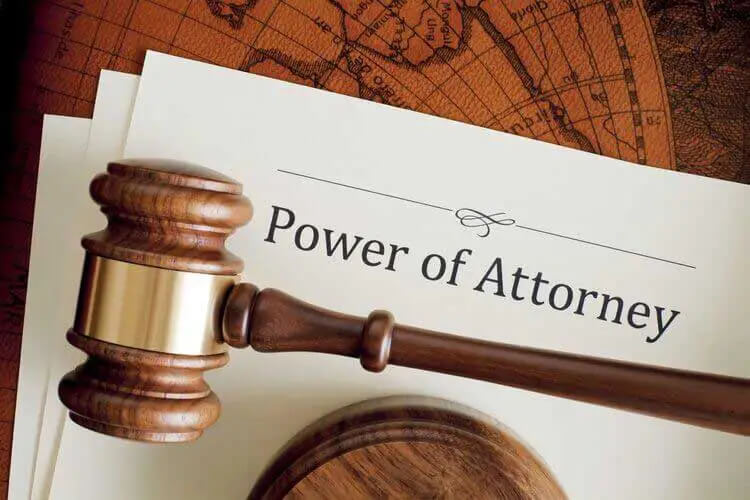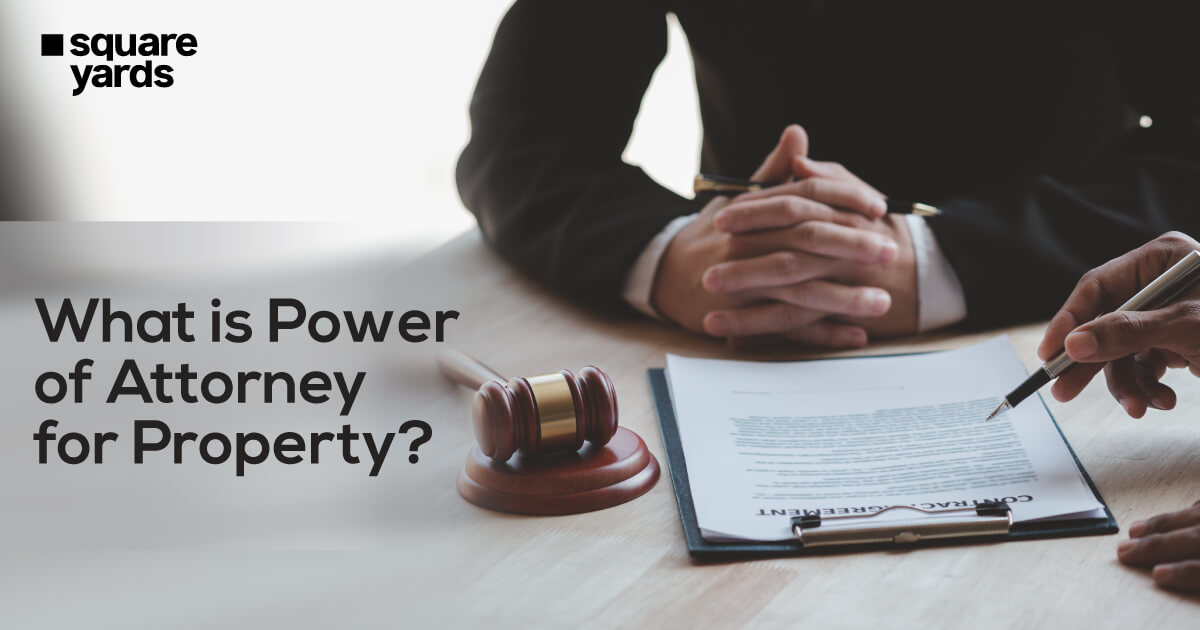Would you want a legal tool that lets someone you trust step into your shoes, handling your finances and property? Well, a Power of Attorney (POA) does just that! But is it that important, and are there different types of POA? In this blog, we cover everything you need to know about a POA and how you should get started in Ontario, Canada!
Definition: Power of Attorney For Property in Ontario
A POA is a legal document that gives one or more people (referred to as the attorney) the ability to handle another person’s property and financial matters (the grantor or principal). This document is used in Canada. Bill payment, asset investing, property sale, and healthcare decision-making are some common acts. You, the ‘grantor,’ ‘donor,’ or ‘maker’ of the document, have granted this authority beforehand. In order to initiate this process, an agreement may be set up to begin immediately or only in response to specific circumstances.
What are the Different Types of Power of Attorney?
In Ontario, Canada, people can establish two main kinds of power of attorney to handle their affairs: personal care and property. Every variety fulfils a distinct function, enabling the designated representative to make choices on behalf of the grantor in particular domains of their existence.
Let’s examine each type in more detail:
Power of Attorney for Property
This legal agreement gives the designated counsel the authority to decide on the grantor’s assets and financial matters. It falls under the following categories:
-
- General Power of Attorney: This POA is only effective if the grantor is mentally competent to handle their affairs. However, it allows the attorney to handle all elements of the grantor’s assets and money.
- Continuing Power of Attorney for Property: The POA is only effective if the grantor is mentally competent to handle their affairs. However, it allows the attorney to handle all elements of the grantor’s assets and money.
Power of Attorney for Personal Care
Suppose the grantor becomes incapable of making decisions for themselves. In that case, this power of attorney empowers the designated attorney to make decisions regarding the grantor’s personal care. This includes food, clothes, housing, cleanliness, and safety. It is significant to remember that this POA only takes effect when the grantor is unable to make decisions regarding their own personal care.
Why is it Important to Obtain a Power of Attorney For Residents

If you cannot make decisions for yourself in an emergency, your attorney will handle decisions regarding your personal affairs, property, finances, and medical treatment. Often, you can assist your lawyer even further by laying out these choices ahead of time. Contrary to popular belief, power of attorney is not limited to elderly individuals or those contemplating end-of-life care. No matter your age, POA forms protect you in the case of incapacitation. This covers everything, from urgent medical care to physical mishaps. You never hope that a power of attorney will be needed, but in the unlikely event, it can safeguard your assets, well-being, and freedom of choice. As it protects you during your lifetime, your POA is a terrific way to consider disability insurance. By comparison, your will is a life insurance that provides for your heirs after death.
Why is it Necessary to Create Power of Attorney in Ontario?
You can prepare your forms for power of attorney in Ontario without the assistance of a lawyer. To be legal, though, a few requirements must be fulfilled. In Ontario, these consist of:
-
- The document cannot be saved online; it needs to be kept as a physical document that is printed.
- You have to be over the majority age in your province and of sound mind.
- Two legitimate witnesses must be present when you sign your paper, and they must both sign to attest to their presence.
- You cannot digitally sign and witness your estate planning documents; instead, the signatures must appear at the very end of the document and be in wet ink.
Is Notarization Required for a Power of Attorney to be Valid in Ontario?
Notarising your power of attorney in Ontario is not required. If you followed the instructions for witnessing and signing, you have a legal power of attorney document!
Responsibilities of Power of Attorney in Ontario?
In Ontario, the powers of attorney for property allow you to manage your assets and finances in any way you can if you are competent. This covers activities like using your financial accounts, making payments, collecting debt, requesting assistance, buying investments (such as stocks, bonds, or mutual funds), or liquidating assets. However, your property attorney is not allowed to make your will. Power of attorney in Ontario for personal care can make decisions about your health care, medical treatment, diet, shelter, clothes, hygiene, and safety. Additionally, they are in charge of informing physicians and other medical personnel of your desires regarding your care, including pain management and life support.
Steps To Follow For Creating Power of Attorney in Ontario?
Making a power of attorney is simpler than you might believe. In Ontario, one can obtain a legal power of attorney in a few different ways:
Power of Attorney Documents with Blanks To Fill in
Generally speaking, these forms are a good free or inexpensive choice. They are usually generic, which may not consider your own living circumstances or permit a great deal of customising. If you’re utilising one, ensuring your POA form complies with Ontario legislation is crucial.
Platforms For Online Power of Attorney
Online resources such as Willful offer a practical and cost-effective choice for those seeking customised POA documents. Willful’s dynamic platform asks you all the pertinent questions so you can be sure your document accurately expresses your desires. We also provide comprehensive guidelines to guarantee that your document is enforceable in Ontario. In Ontario, Willful also provides legal wills.
Paying a Visit to The Attorney
You may see a lawyer if you have complicated requests or need legal counsel. A lawyer can help you navigate any complexity and create a document that best suits your interests. A lawyer’s personalised POA, however, might be highly costly.
You May Also Read :
|
Guide To Property Type in Toronto |
|
|
All About Real Estate Investment Trusts |
|
|
Know The Property Lien in Canada |
|
|
Manage Property Tax Bill in Canada |
Frequently Asked Questions (FAQs)
What is a Power of Attorney for Property?
A power of attorney (POA) of property is a legal document that gives the attorney or agent access to and management of the principal's assets in the event that the principal is unable to manage them themselves.
What are the Different Types of Power of Attorney?
The two different types of power of attorney are Power of Attorney for Property and Power of Attorney for Personal Care.
Why Should Ontarians Have A Power Of Attorney?
In Ontario, a power of attorney is a crucial component of estate planning because it safeguards your assets and you in the event that you are unable to manage your own affairs.
Do I Need A Lawyer To Make A Legal Power Of Attorney In Ontario?
Yes, a lawyer is a must to make a legal Power of Attorney in Ontario.
Does A Power of Attorney Need To Be Notarized In Ontario?
No, a notary's signature is not required by law in Ontario for powers of attorney. Nonetheless, having your powers of attorney notarized is a very smart idea. Many establishments, including banks and financial institutions, won't accept a notarized power of attorney.
What Are The Duties Of A Power Of Attorney In Ontario?
If you become medically incapable in Ontario, your continuing power of attorney for property will handle all financial and property decisions on your behalf. This include handling your investments, paying your expenses, and even getting back any money that is owed to you.
How Can I Make A Power of Attorney In Ontario?
A power of attorney document can be created by you at no cost, or it can be created by a lawyer. You have two options for creating your own power of attorney: download and finish this free kit. Utilise this Community Legal Education Ontario web tool.



































